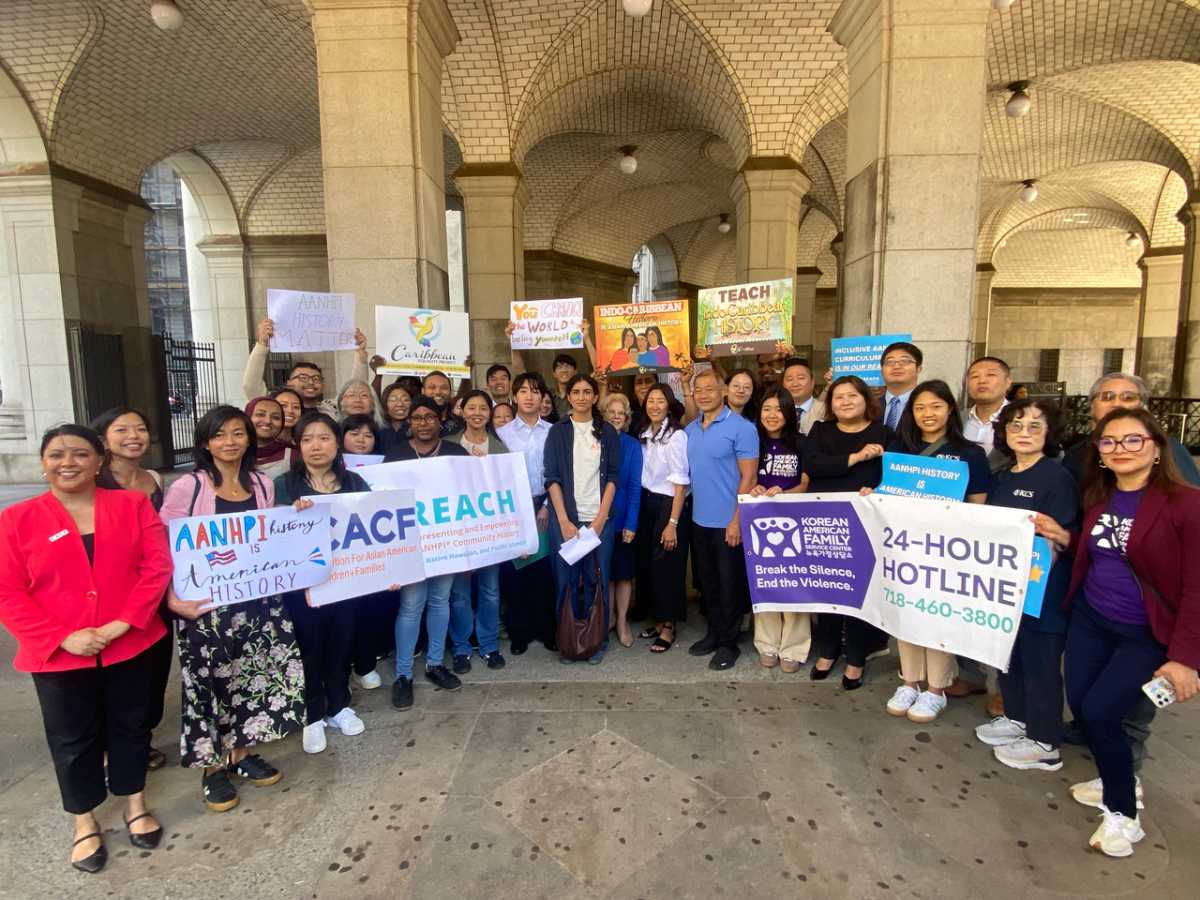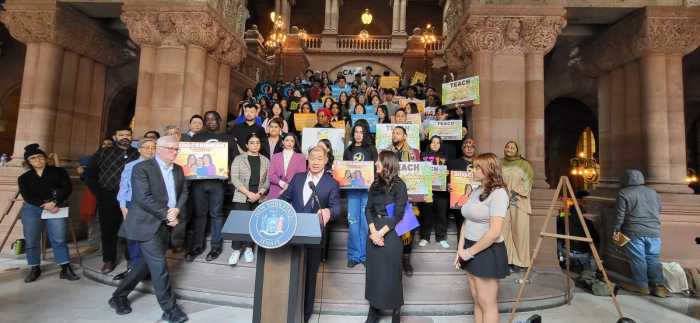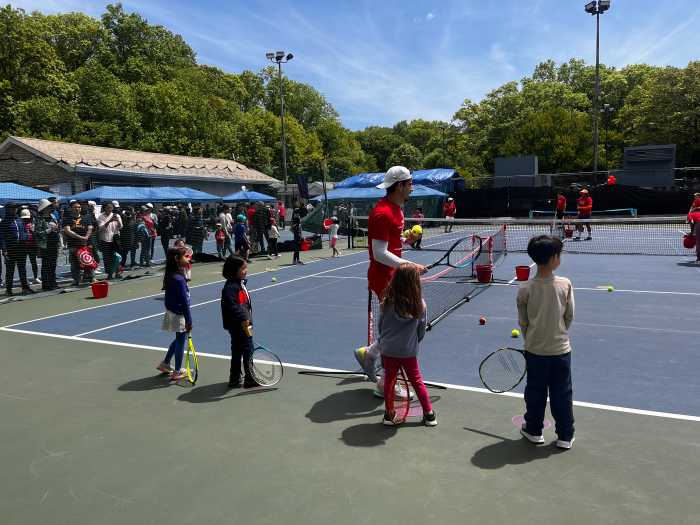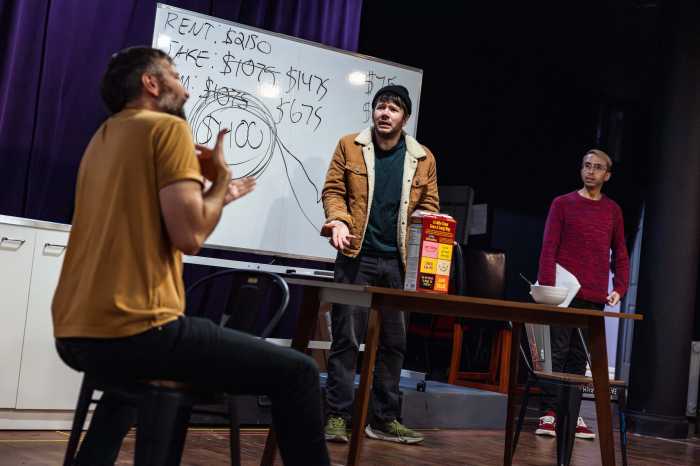State Sen. John Liu joined Manhattan Assembly Member Grace Lee and members of the Representing and Empowering AANHPI Community History (R.E.A.C.H.) Coalition outside City Hall on Wednesday, Aug. 27, to celebrate the passage of the AANHPI Education Equity Act in the New York State legislature and call on Gov. Kathy Hochul to sign the bill into law.
Liu, along with Lee, educators, students and members of the R.E.A.C.H. Coalition, called on Hochul to sign the legislation into law ahead of the new school year, stating that the legislation will help create a more inclusive and accurate curriculum in New York schools.
Both houses of the state legislature passed the AANHPI Education Equity Act in June, which supporters say is a critical measure to understand how public schools across New York are teaching Asian American, Native Hawaiian and Pacific Islander (AANHPI) history.
The legislation would direct the New York State Education Commissioner to conduct a statewide survey to assess what schools currently teach about AANHPI history. It also establishes the first-ever AANHPI History Advisory Committee, charged with providing recommendations on how to better integrate the curriculum into classrooms statewide.
Speakers at Wednesday’s rally said the legislation would be a milestone for education equity in New York State, ensuring that students see themselves reflected in classrooms and that all New York students receive a more complete and inclusive understanding of American history.
The legislation is part of a “multi-step” approach to ensure that AANHPI history is accurately and fully reflected in New York classrooms and is aligned with a separate bill that calls for the development of an AANHPI curriculum consistent with New York state learning standards. That bill, also sponsored by Liu and Lee, passed the Senate earlier this year, but did not pass the Assembly before the end of the session.
On Wednesday, Liu called on Hochul to sign the legislation into law, stating that the act would ensure that school curriculums reflect the “true history” of New York’s AANHPI communities.
“For too long, these stories have been absent from our classroom either by design or willful ignorance. This legislation ensures we take a clear-eyed look at what is being taught, and what’s not, so that all students can benefit from a more honest and complete understanding of our shared history,” Liu said in a statement.
Lee, meanwhile, said AANHPI history is “too often” ignored, marginalized or erased.
“Education is one of the most powerful tools we have in fighting hate and ignorance,” Lee said. “Today, we celebrate a critical milestone toward inclusive education with the passage of the AANHPI Education Equity Act. This bill affirms that our stories matter and that our community deserves recognition. Now we urge Governor Hochul to sign this bill into law.”
Brianna Cea, co-founder of the R.E.A.C.H. Coalition and a former president at OCA – Asian American Pacific Advocates New York, said the legislation underscores the power of community advocacy and coalition building.
“We look forward to supporting efforts that provide educators with the resources and guidance they need to teach an inclusive and accurate curriculum, ensuring that AANHPI students see their histories reflected in classrooms – especially when our communities are under attack,” Cea said in a statement.
John J. Chin, Dean of CUNY’s Asian American/Asian Research Institute (AAARI), described the bill as “landmark legislation” that responds to generations of AANHPI stories being overlooked.
“We’ve seen how access to community-centered histories can empower students, affirm a sense of belonging and foster a more inclusive society. This law brings that promise within reach for schools across the state,” Chin said.
Jeehae Fischer, executive director of the Korean American Family Service Center, said the AANHPI Education Equity Act was “more than an education bill,” stating that the legislation represents an investment in safety, belonging and dignity.
“When young people learn the histories and contributions of Asian American, Native Hawaiian and Pacific Islander communities, we combat invisibility and stereotypes that too often fuel bias and AAPI hate, and we break the silences surrounding violence,” Fischer said.



































